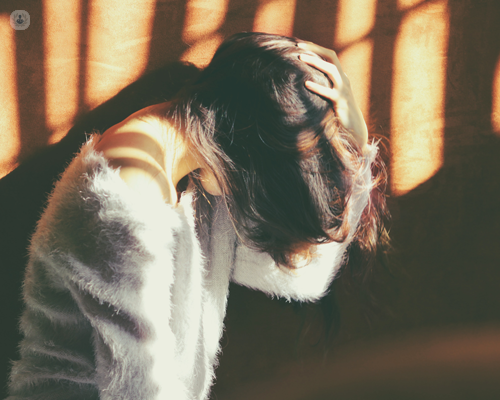Is losing hair in your twenties normal? What can be done?
Written by:Many older people say that being in your twenties is the best time of your life. If you’re actually a twentysomething, however, you may feel differently. Moving into adulthood is a stressful time and the last thing you need is the extra worry that hair loss can cause on top of everything else that’s going on.
Here to provide reassuring advice about what you can do about hair loss in your twenties, is leading aesthetic medicine and dermatology expert Dr Rachael Kay of the Farjo Hair Institute.

Can people in their twenties really lose their hair?
If you’re in your twenties and experiencing hair loss, discovering more and more strands clogging your shower drain, or finding that your thick mane is looking a little thinner, you aren’t alone.
It may be strange to hear, but when you consider the complex process of hair growth, it comes as no surprise that hair loss and thinning are incredibly common for people in their twenties.
There is a four-step cycle for hair. It grows, rests, falls out and regenerates. This cycle can be interfered with a number of different things, so the texture and amount of your hair can be easily affected.
Do extreme diets affect hair loss in your twenties?
A healthy diet is great for your general wellbeing but it’s also crucial for your hair growth.
If you’re restricting your body of nutrients by cutting out food groups, you body will start to divert its energy towards some of your more crucial organs such as the heart, lungs or brain. In turn, this energy will move away from replenishing your hair growth.
What you can do: Because your hair requires this energy for growth, ensure you’re eating enough energy-boosting foods such as protein, iron and vitamins, alongside fatty acids. This means that your body will always have enough nutrients to keep the cycle moving.
It’s also important to note: you most likely won’t notice the impact of your changed diet on your hairline until about three months after you begin. This is due to the fact that it takes a while for your hair to go through the full cycle of resting and falling.
Is stress a cause of hair loss in your twenties?
Stress – both chronic and sudden – is scientifically proven to slow down the hair cycle.
It’s caused because of a hormone called cortisol, produced by your body when you’re feeling stressed. It forces your hair into the ‘resting’ phase, often referred to as ‘telogen effluvium’.
The impact of stress-related hair loss isn’t permanent but the impact does last for a while, sometimes up to nine months.
What you can do: Your twenties can be a stressful time, so prioritising your mental health is very important. Think of ways you could reduce stress in your life, including:
- Meditation,
- Yoga, and;
- Perhaps additional therapeutic support.
Do changes in hormones cause hair loss in your twenties?
Women, especially in their twenties, are often more sensitive to hormonal changes. Things like birth control, menstruation and pregnancy can all have a huge impact.
Oestrogen and progesterone in high levels can help hair grow faster. However, sudden drops of these can dramatically reduce growth.
High levels of oestrogen and progesterone can help hair to grow faster, while sudden drops of these hormones can reduce growth quite dramatically. And as these levels fluctuate, so does the quality of your hair cycle.
Male hormone balance also has an impact on their hair cycle. Dihydrotestosterone (DHT) is a hormone that has a massive impact on the regeneration of hair follicles, as it can cause hair to become thinner or more brittle.
What you can do: For those suffering from hormone-related hair loss, there are medications and supplements available. I suggest that speaking with a doctor or consultant who specialises in hair loss can assist you on the best course of action.
Are there other reasons for hair loss in your twenties?
If you enjoy a balanced diet, have a relatively stress-free life and don’t have any significant changes in hormones, for example birth control or pregnancy, but you’re still noticing significant hair loss in your twenties, then we recommend seeking advice from a professional.
It could be that an underlying medical condition is at play, or your genetics could be responsible.
You can discover where changes to your lifestyle could be beneficial with the help of a specialist, who can advise what treatments are available.
If you’re considering treatment for hair loss in the twenties, you’ll be taken through various options available by our specialists so you’re able to make an informed choice.
Visit Dr Rachael Louise Kay’s Top Doctors profile to arrange an appointment with her or a member of the Farjo Hair Institute expert team.


